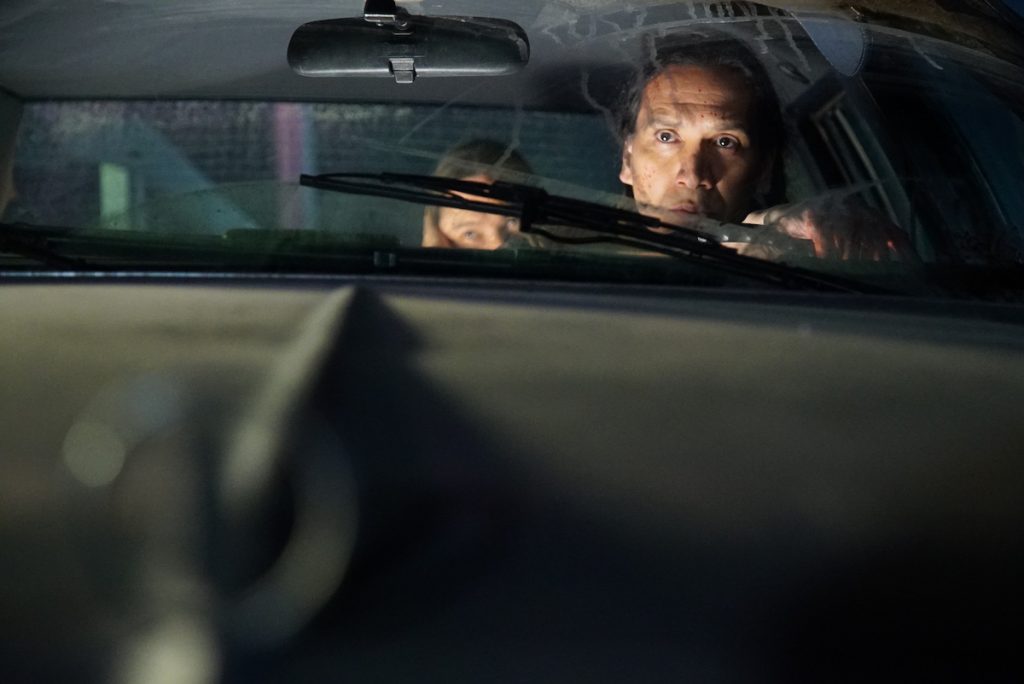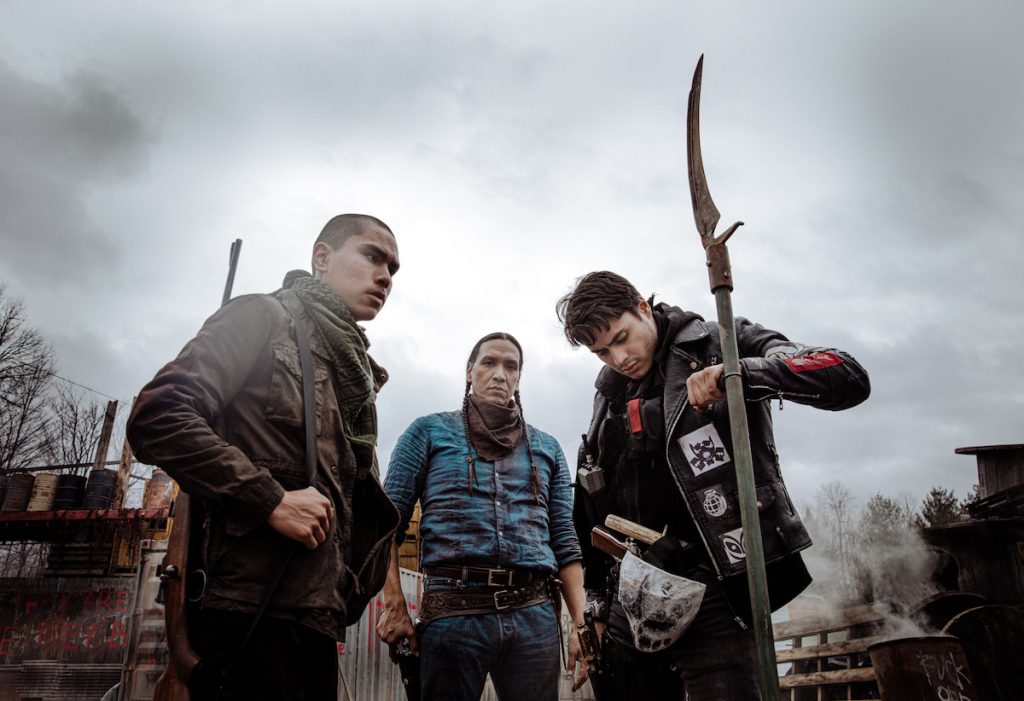By Anne Brodie

Michael Greyeyes is an imposing figure in film, television, and theatre. The Canadian actor, director, dancer, and founding artistic director of Signal Theatre is having a remarkable professional moment. Greyeyes appears in HBO’s I Know This Much is True and True Detective, Apple TV+’s Home Before Dark and as of April 28th on VOD, Jeff Barnaby’s highly anticipated zombie thriller Blood Quantum.
You’re everywhere! Congratulations! How are you feeling these days?
I’m well and delighted and of course grateful for the opportunities of the past few years. As you may know I stepped away from performance to create theatre and direct and came back to performance with Woman Walks Ahead. Since then I have been really busy and of course, Blood Quantum was particularly interesting to me. I’m a huge fan of Jeff Barnaby.
You founded a theatre group!
I created Signal Theatre in 2011 and continued to make and rework plays and create a lot of theatre work, most recently Bearing which was a big hit at Luminato and Two Odysseys: Pimooteewin / Gállábártnit, through the Indigenous Language Office.
Ok, Blood Quantum! I’m not a big zombie and gore fan but I love Blood Quantum because it raises so many important issues. The zombies can’t penetrate the reserve because the community’s immune, and under siege from infected outsiders. It’s incredible how it parallels the fears of the real pandemic now.
It’s startling, absolutely startling how it parallels it. We were watching the news and it was wow, this was in our film exactly! What we are talking about is different communities and closing our borders to outsiders. That’s the very premise of our film and life now.
I spoke with Jeff who preferred it open in theatres because it was made for the big screen. But being released now seems like a good idea, as it can be cathartic.
Of course I wanted a theatrical release because the images Jeff and the cinematographer Michel St-Martin made are epic, it’s storytelling in the biggest sense of the word and needed that kind of canvas, but I also know film-going is different in the 21st century. We’re now in the middle of what feels like an apocalypse. We stay at home and turn on our tv and lose ourselves in new, complex storytelling. It makes a lot of sense. We’re watching tonnes of stuff, movies we’ve always wanted to see, series that slipped by us because there is so much content. So, I’m glad it’s in the community.

You play Traylor the police chief and he is in a difficult spot. He is trying to be measured but there are so many elements in play like social politics, family ties and duties. You can see that anxiety.
The story that I went to when I read the screenplay was a story about fathers and fatherhood and what it means to Jeff and me as a father and what it means to generations of men. What do we bring forward to make better versions of ourselves? Not repeat the mistakes of the past? Even though this is about zombies and blood and gore, there’s a really nuanced story about fatherhood. And at the same time, he and his sons are two sides of a single coin. The father is incapable of being a present father absent in many ways, I’m living in the shadow of a man who did much better than I did.
While making a film that is so charged do you feel it or just shake it off at the end of the day?
I know when we were doing the work it was an extremely physical shoot. We shot at night in early spring and it was really cold, early spring and really hard. I felt the emotional toll when it was finished when I got home. I was exhausted. I was making True Detective at the same time so that was a really tough one, and one of the reasons why was the certain complex emotion embedded inside the layers.
The Settlers Proverb that opens the film and basically lays out “permission” for colonial abuse is so awful and shameful. I couldn’t believe it when Jeff told me it came from the Bible.
Again, part of his writing is so complex, that Biblical thing and once the community responds to the apocalypse, it looks medieval, the fort and the fires and history plays out really profoundly.
You had a long career as a ballet and modern dancer, do you still dance?
No dancing. I leave that to the young ones!
True Detective
You can always tell a dancer with that beautiful posture. It makes you seem even more majestic onscreen.
I appreciate that. I actually feel that there’s not a day or a moment on a film set I’m not thankful I came out of that training. What it allowed me was an incredible discipline, control of my body and sense of space, and the rigour that I experienced as a student. It serves me in every scene in every minute.